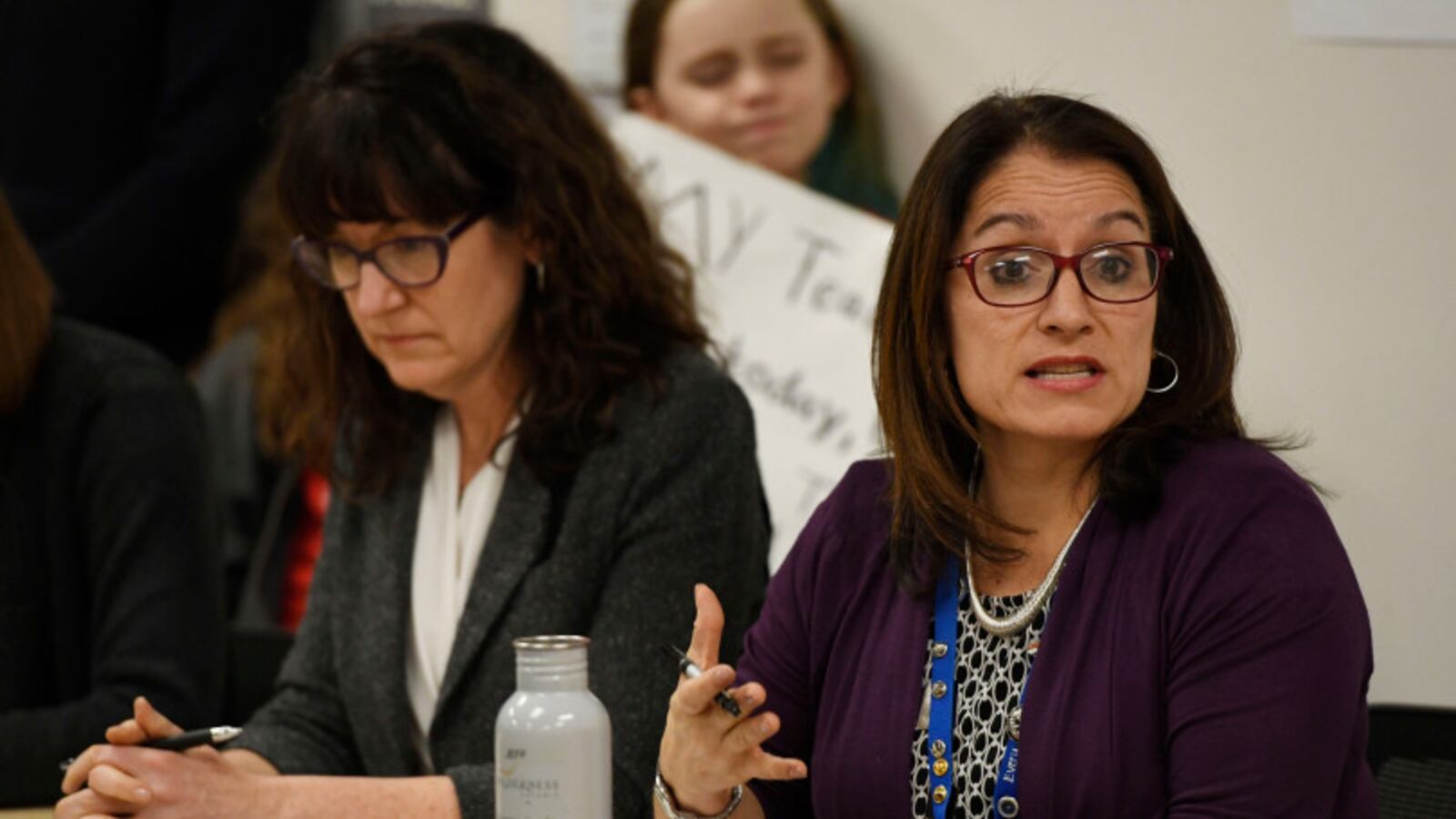Denver Public Schools began the process this week of cutting more than 150 administrative positions from its central office, which will free up $17 million for raises for teachers and other district employees, as well as additional money for special education services.
The Denver district has far more administrators than others in Colorado, and Superintendent Susana Cordova has said repeatedly that the district needs to have fewer initiatives and focus on doing a smaller number of things well.
“We have too many priorities, too many people working on those priorities, and not enough impact coming out of that,” Cordova told union negotiators at a bargaining session before the teachers strike. “I am 100 percent committed to right-sizing what the central office looks like.”
Over the course of negotiations before and during the strike, Cordova committed to even larger cuts than she originally laid out in order to put more money into teacher compensation. She also eliminated bonuses for many administrators.
This week, Cordova released an “entry plan” laying out her priorities for the next several months, with a focus on “equity, instructional excellence, and collaborative teamwork.” The district also started notifying employees who would lose their jobs.
“This week, we are refocusing our efforts where it matters most,” district spokeswoman Anna Alejo said in an email. “We will consolidate or realign central office teams to align with Superintendent Cordova’s vision and core beliefs and eliminate redundancies in our work.”
Cordova said during negotiations that the individuals who would lose their jobs care about children and are doing important work — but paying teachers more is even more important for the district’s mission.
District officials are not yet speaking publicly about which positions are being cut. Alejo called the reductions “extremely painful” and said they require the district “to make challenging trade-offs.” District officials want to wait until the internal notification process is complete before discussing the cuts in more detail.
“In a state as wealthy as Colorado, we should not have to be making these choices, but given the low state funding to schools, we have little recourse,” Alejo said.
In addition to teacher pay, money from central office cuts will go toward higher pay for hourly workers, such as paraprofessionals, bus drivers, and food service workers. The district is also setting aside money for recommendations from a task force on special education.

